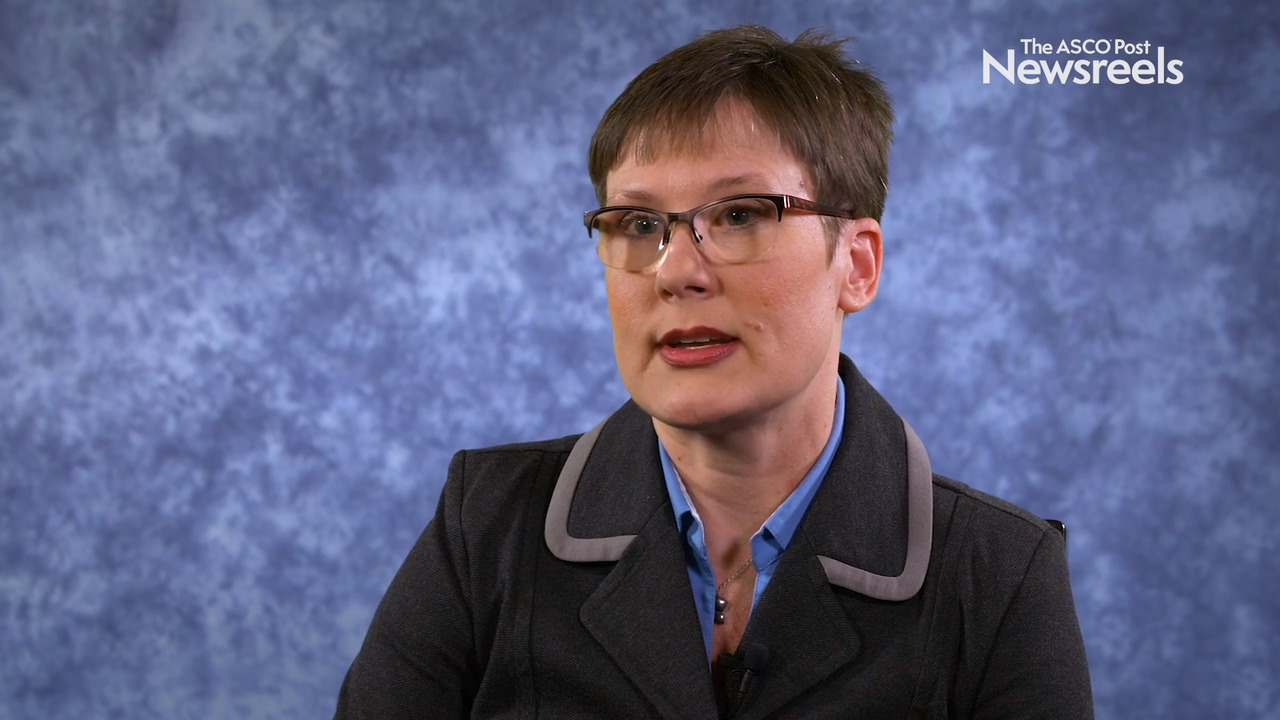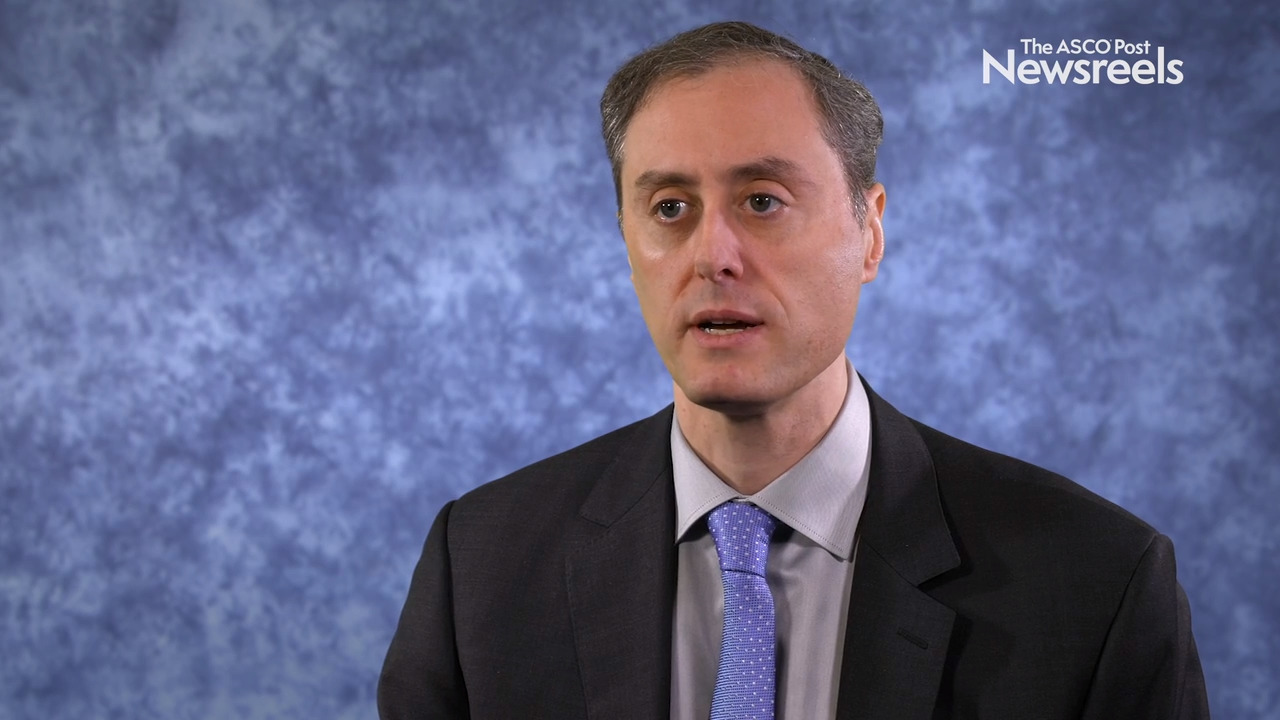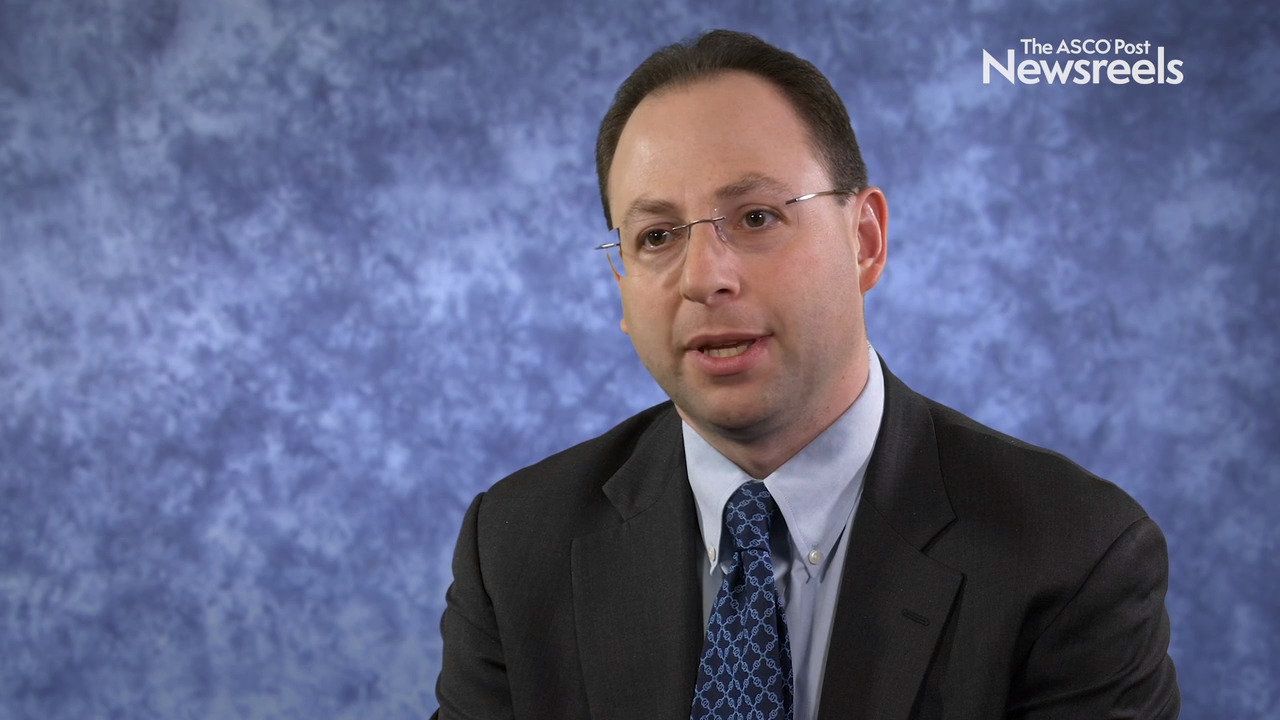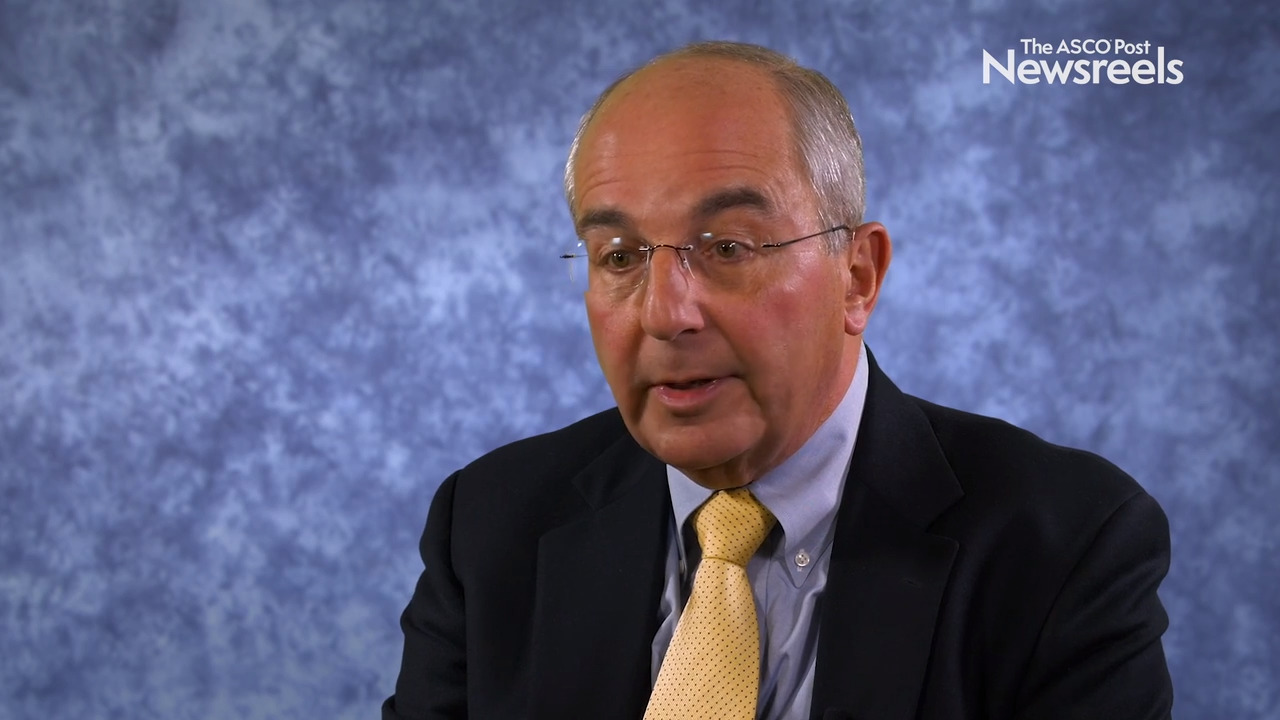Nadeem Riaz, MD, on Established and Emerging Biomarkers for Immunotherapy in Head and Neck Cancer
2020 Multidisciplinary Head and Neck Cancers Symposium
Nadeem Riaz, MD, of Memorial Sloan Kettering Cancer Center, discusses the biomarkers that have emerged for immunotherapy and their tumor microenvironments, from PD-L1 staining and the Combined Positive Score to next-generation genomic technologies.
The ASCO Post Staff
Francis P. Worden, MD, of the University of Michigan Health System Comprehensive Cancer Center, explores the use of novel biomarkers that may help predict response to induction chemotherapy and survival in patients with locally advanced laryngeal cancer.
The ASCO Post Staff
Carryn M. Anderson, MD, of the University of Iowa Hospital, discusses the investigational agent GC4419, previously shown to be safe and effective in decreasing the duration, incidence, and severity of oral mucositis in patients receiving concurrent cisplatin and radiation for oral cavity and oropharyngeal squamous cancers. The 2-year tumor outcome data suggest that GC4419 does not seem to compromise tumor control (Abstract LBA2).
The ASCO Post Staff
Jared Weiss, MD, of the University of North Carolina, Chapel Hill, discusses outcomes for patients with stage III or IV disease who are ineligible for the standard treatment of cisplatin plus radiotherapy. His data suggest that treatment with pembrolizumab/radiotherapy instead is tolerable, with improvements seen in progression-free and overall survival (Abstract LBA1).
The ASCO Post Staff
Jonathan D. Schoenfeld, MD, MPH, of Dana-Farber Cancer Institute and Brigham and Women’s Hospital, discusses phase II study results with the PD-1 inhibitor nivolumab or the combination of PD-1/CTLA-4 inhibition with nivolumab/ipilimumab in patients with newly diagnosed untreated oral cavity cancer (Abstract 1).
The ASCO Post Staff
David Adelstein, MD, of the Cleveland Clinic, discusses the hypothesis that treatment can be de-intensified in patients with HPV-associated oropharyngeal cancer and a good prognosis.





